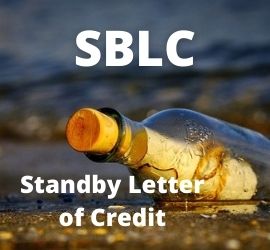What Is a Hard Money Loan?
 A hard money loan is shorter-term financing secured by a hard asset or real property. These loans are usually arranged through an individual or company as opposed to a bank. A hard money loan is a type of loan that is often secured by real property. These types of loans used to be considered loans of last resort used for short-term bridge financing for real estate. However, hard money loans have grown in popularity. As a result, it’s possible to find a good deal if you take the time to explore all your options.
A hard money loan is shorter-term financing secured by a hard asset or real property. These loans are usually arranged through an individual or company as opposed to a bank. A hard money loan is a type of loan that is often secured by real property. These types of loans used to be considered loans of last resort used for short-term bridge financing for real estate. However, hard money loans have grown in popularity. As a result, it’s possible to find a good deal if you take the time to explore all your options.
A hard money loan is often known as a short-term bridge loan. It is a form of financing that uses a hard asset as collateral, usually real estate. These loans have become quite popular with property flippers for quick real estate upgrades. Individuals or private enterprises, not banks, are hard money lenders. Traditional banks base their findings on factors like creditworthiness, financial history, and repayment capabilities. Also, the process of obtaining a standard bank loan may be time-consuming and laborious. It takes time for the lender to investigate an individual and their credit history. The collateral is more important with hard money loans. Ultimately, if a borrower fails to make payments, the lender may repossess the property as payback for the debt.
How a Hard Money Loan Works
The terms surrounding a hard money loan are determined primarily by the value of the property. The collateral used as security is paramount to the borrower’s creditworthiness. Traditional lenders, such as banks, do not issue hard money loans. Hard money lenders are often private individuals or businesses who find value in this sort of potentially risky undertaking.
For example, property flippers refurbish and resell the real estate used as security for these types of loans. Most often, they flip the property and repay the loan within a year, if not sooner. The increased cost of a hard money loan is compensated by the borrower’s intention to repay the debt relatively quickly. Usually, hard money loans are for one to three years. Lending hard money might be considered an investment. Many individuals use this structure as a business concept and make repeated loans.
A Hard Money Loan Carries Higher Interest Rates
The cost of a hard money loan to the borrower is often greater than the cost of financing available through banks or traditional lenders. The higher cost and interest reflect the higher risk that the lender takes by providing the credit. However, the higher cost is a tradeoff for speedier access to funds, a less demanding approval procedure, and potential payback plan flexibility. Hard money loans can be utilized for turnaround circumstances, short-term funding, and by borrowers with bad credit but significant equity in their property. For instance, a hard money loan can be utilized to avoid foreclosure as it can be rapidly secured.
In September 2021, the average rate on a conventional 30-year fixed-rate mortgage was 3.01%, according to Freddie Mac. By contrast, hard money loans can have interest rates that are much higher, often 8 – 15%. (Source: freddiemac,com)
Hard Money Lenders – What To Know
Pros and Cons of a Hard Money Loan
There are advantages and disadvantages to hard money loans in terms of the approval procedure, loan-to-value (LTV) ratios, and interest rates.
Pros
- Swift Loan approval – A key benefit of a hard money loan is the approval procedure. Qualifying is significantly faster than applying for a mortgage or other regular loan through a bank. The lender is focused on collateral rather than an applicant’s financial situation. This allows the private investors who support the hard money loan to make judgments more quickly.
- Streamlined Verification – Lenders are not bogged down poring through loan applications. For example, confirming income and evaluating financial documentation. If the borrower already has a relationship with the lender, the procedure will go even more smoothly.
- Flexibility – A standard underwriting method is not used by hard money lenders. Deals are instead examined on a case-by-case basis. You are talking with an individual or a private firm, not a commercial bank with rigid regulations. It may even be feasible to change repayment schedules and loan terms.
- Collateral is king – Hard loan investors are less concerned with repayment. With valuable property as collateral, there may be a higher value if the borrower defaults. That leaves the lender with the possibility to resell the property at an even greater profit.
Cons
- Lower Loan-to-Value Ratios – Because the property is the main guarantee against default, hard money loans often have lower LTV ratios than ordinary loans. 50 to 70 percent is usual vs. 80 percent for conventional mortgages. However, LTV ratios can go higher if the borrower is an experienced flipper.
- Higher Interest – Interest rates are often high. Hard money loans might have interest rates that are much higher than subprime loans. The average interest rate for a hard money loan in 2020 is 11.25 percent. Overall, interest ranges from 7.5 percent to 15 percent for the United States. The interest rates for hard money loans will always be greater than those on standard loans. Lenders take on additional risk by offering you the convenience of fast access to financing for your real estate investment.
- No long-term loans – The longer the loan duration, the greater the risk assumed by the lender. Interest rates fluctuate with the economy. A lender’s investment in your property may ultimately yield less than what they could earn by investing in a fresh trust deed at then-current interest rates. This exposes the lender to higher interest-rate risk and inhibits them from making long-term loans.
Frequently Asked Questions
Do Hard Money Loans end up on my credit report?
The majority of hard money loans, such as repair and flip loans, do not appear on your credit record. However, bear in mind that this is not always the case. You should speak with your lender about the specifics of your loan. In any case, the loan will usually show up on a background check or asset search. Most hard money lenders use this method during the application acceptance process.
How long does it take to secure a hard money loan?
If approved, hard money loans are frequently accepted and funded within a few days. The majority of hard money loans have payback periods ranging from one to three years. Hard money loan interest rates are often higher. This is why it makes sense to acquire one if you intend to pay it off promptly. Many property flippers employ hard money loans because they want to repair and sell the home within a year. Therefore, they use the property as collateral for the loan. In this situation, the high cost is compensated by the borrower’s intention to repay the loan fast.
Is a hard money loan worth it?
Hard money loans are ideal for individuals who need to fund an investment property rapidly. Also, without the red tape that comes with bank financing. Always pay particular attention to the fees, interest rates, and loan terms while evaluating hard money lenders. A hard money loan is not without flaws. Simply put, an asset secures the loan, so both parties are protected. But, a hard money loan has risks as well. One of the most significant disadvantages of hard money may be the additional expenditures you face. This is a costly technique of borrowing. Interest rates are quite expensive, and you may be required to pay closing charges or other expenses in order to obtain financing.
Where can I find a hard money loan?
You’ll need to contact organizations that specialize in this sort of transaction to find a hard money loan. A quick online search for hard money lenders will usually turn up many lenders in your region. Names can be obtained through local real estate agents and real estate investment clubs. Contact various lenders and discuss your requirements. It helps to establish a connection so that you can fund projects fast and simply when needed. Because hard money loans are less regulated, it is advantageous to shop around. You may be able to discover cheaper rates or negotiate different conditions with several lenders.
Up Next: What Is Short Interest?
 Short interest in the stock market refers to the number of shares that have been sold short but have not yet been covered or closed out. Short interest, which can be stated numerically or as a percentage, is a leading indicator of market mood. Extremely high short interest indicates that investors are extremely negative and potentially overly pessimistic. When investors are extremely pessimistic, it may sometimes lead to very abrupt price increases. Large fluctuations in short interest can also be a warning indicator, indicating that investors are becoming more pessimistic or optimistic about a company.
Short interest in the stock market refers to the number of shares that have been sold short but have not yet been covered or closed out. Short interest, which can be stated numerically or as a percentage, is a leading indicator of market mood. Extremely high short interest indicates that investors are extremely negative and potentially overly pessimistic. When investors are extremely pessimistic, it may sometimes lead to very abrupt price increases. Large fluctuations in short interest can also be a warning indicator, indicating that investors are becoming more pessimistic or optimistic about a company.
Many investors feel that increasing short interest in a company is a negative indication. The days to cover statistic measures growing or dropping sentiment about equities from month to month. The statistic can be useful when comparing investor sentiment across stocks.




